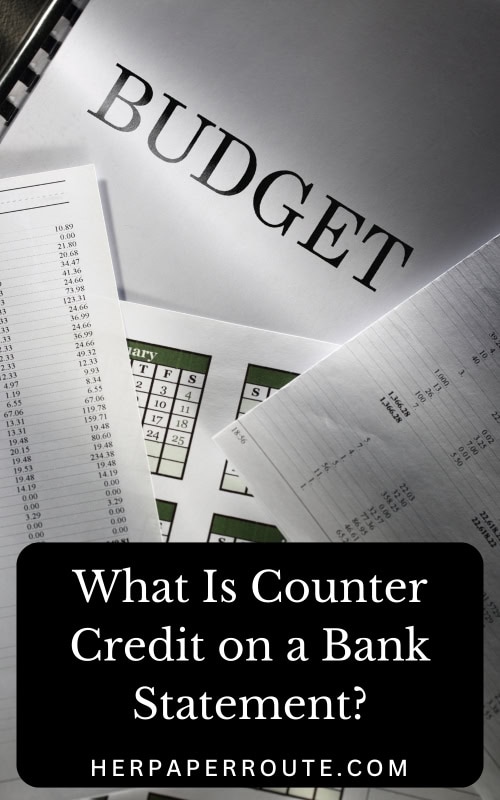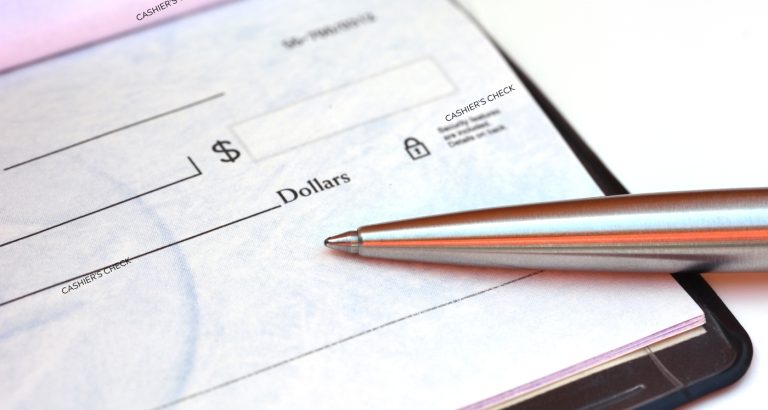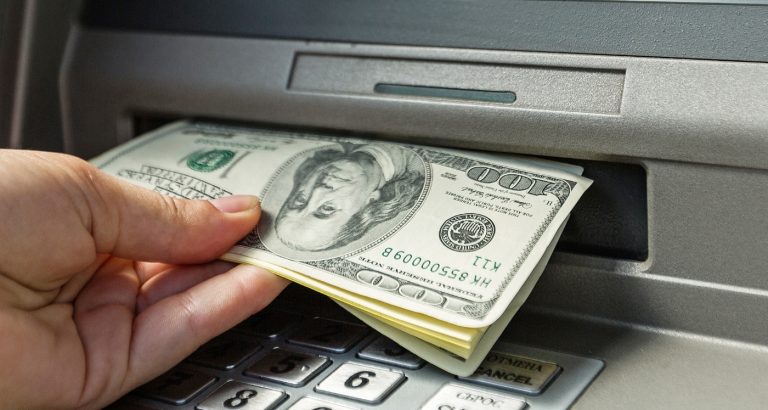What Is Counter Credit and What Does It Mean On a Bank Statement?

Counter credit is a term you may not have heard of. If you’re new to banking or have simply never used this method before, you might be wondering what it is.
And what if it appears on your bank statement? Following, you’ll find the definition of counter credit, as well as answers to common questions related to it.
As an affiliate partner of various brands and sponsored content, HerPaperRoute may earn commission on qualifying purchases. Disclaimer
What Is a Counter Credit?
Before going further, what’s the actual definition of a counter credit? It means you made a cash deposit with a teller in person, aka at the bank counter. You’ve put credit into your account, basically.
And it doesn’t refer to mobile or ATM deposits. So it’s only considered counter credit when you walk into a bank and add money to your account.
What Are the Differences Between a Deposit and Counter Credit?
A deposit and a counter credit might sound like they’re the same thing, but there are some differences.
A counter credit is cash deposited at a bank. It simply means that you deposited the cash, in person at a bank.
In contrast, a deposit could be made in several ways. A deposit can be through an ATM, or it could be electronic or mobile. So with a counter credit, there is only one way to handle it, and a deposit can be made through different processes.
How Do You Make a Counter Deposit?
There are a few steps involved in order to make a counter deposit. Do them in this order:
- Head to your bank, where you have an account open. This is the place you usually make your deposits at.
- Take a deposit slip and fill it in with all the information it asks for – things like date, name, amount, and your account number.
- Give cash to the teller with the deposit slip.
- Be sure to get a receipt. You need to have a record of the transaction just in case.
- Save the receipt and check your account to see that the money was deposited correctly. If not, make sure to contact your bank, though you shouldn’t have any problems.
Why Is Counter Credit Still Used?
With the invention of mobile check deposits and ATMs on every corner, convenience matters a lot to us in this day and age. After all, banks are time-consuming.
At a physical bank branch, you have to stand in line, waiting to be helped. So why do it at all? Here are a few reasons:
First, not everyone likes to use online banking. Not everyone likes or understands technology and apps, so using that for their money can make them uncomfortable.
They may prefer talking to someone who works at the bank in person while they add their deposit.
Next, some people prefer to use cash instead, and this gives them that option. It works well for people who carry cash a lot or may be paid in cash at times.
So it can be more convenient for those that can stop by the bank during regular hours and add some money to their account.
Last, some people do not trust ATMs. They are machines and so are a bit riskier than handing your money directly to another person.
There’s always a chance of a malfunction, even though the chances are good, nothing will go wrong. While most people don’t mind using ATMs, it is nice to have another option to ensure that your funds are super secure.
Why Is a Deposit a Credit on a Bank Statement?
When you receive your bank statement and see something marked as credit, it means that money was added or credited to your account. It just means money was added to your account balance.
The bank will refer to this as credit. They are calling it credit from their own perspective. For you, it isn’t credit but a debit because it adds to your account.
While it may seem confusing, if this shows up on your bank statement, it just means that the money is yours and not the bank’s. It belongs to you and makes your bank account larger.
How Long Does a Counter Credit Take to Clear?
Money that you deposit into your bank account might be money you want to use quickly. So how long does it take for counter credit to appear in your account?
Generally, the money will be available immediately. But each bank has its own policies, so you can always ask the bank teller if you are unsure.
Related: If a Deposit is Pending Can I Still Use the Money?
When to Deposit Money Into Your Account – How Often?
This depends on a lot of things. One of those is how much money you are depositing.
Banks have rules about depositing money that exceeds a certain amount, so make sure you’re aware of those if you’re adding a large sum.
Suppose you aren’t depositing large amounts but find that you often collect cash and don’t like to carry it around. In that case, you might choose to deposit your money more often, like weekly, instead of monthly.
Thoughts About Banking and Counter Credit
When you choose a bank, you want it to have all the options that you decide are important. This also applies to counter credit.
If your bank is online-only, you lose the ability to walk into a local branch and add cash to your account as counter credit.
This may not be a problem for you, depending on what you value and how often you deposit cash. If you never use cash, having an online bank should be easy.
If you add cash to your account frequently, you should find a local bank to quickly get to and deposit funds.
But if you currently add cash to your account as counter credit a lot and want to stop doing so for convenience, there are ways.
First, ask anyone who pays you in cash to use checks instead. That way, you can go to an ATM or use an app for mobile deposits.
After that, you should be able to bank anywhere, though it may make sense to still use a local bank with a branch nearby, just in case you need to deposit cash funds at any time.
Can Someone Else Put Counter Credit Into Your Account?
Yes, usually they can. They do need some information about you to do so, like your name and possibly your account number, but then they can probably add cash to your account.
That being said, banks have their own policies and may choose to not allow this. It’s best to check it out before trying to add money to someone’s account and make sure they are aware you’re going to do so. Otherwise, there might be confusion.
Can You Add Counter Credit to Someone Else’s Account?
If someone else can add counter credit to your account, then it works the same way for them.
You must inform the person ahead of time about adding money to their account and be sure you know the rules for their bank. Also, be prepared with any relevant information the bank may ask for before making the deposit.
A counter credit means that you deposited cash at the bank with a bank teller.
Counter credit is simple and just means that you made a cash deposit at your bank. If you see the term “counter credit” on your bank statement, it just means money that was deposited in this way.
For some, it’s an easy way to add money to their accounts. For others, it is time-consuming and not practical. Either way, it’s a process you should be familiar with.
Related Articles:
- How to Withdraw a Large Amount of Money from Your Bank Account
- What Happens to My Direct Deposit if my Bank Account Closes?

Follow along on Instagram!











